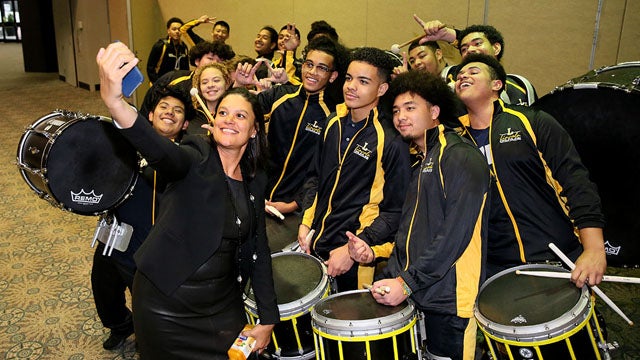Even as the broad outlines of our vision are becoming clearer, we continue to grapple with myriad questions related to practice, policy, and next steps. Over the next year, the Commission and its working groups and subcommittees will consider the following questions:
- How can we close the gap between what we know and what we do? “The Evidence Base for How We Learn” by the Council of Distinguished Scientists concludes that high-quality learning happens when social, emotional, and academic development are connected. How can we build from this knowledge to help schools approach teaching and learning in ways that are based on the science of how students learn?
- What questions still need to be answered in order to effectively support student learning? There’s much we still don’t know about how to effectively integrate social, emotional, and academic development into classroom instruction, school culture and climate, and professional-learning opportunities. What questions should be a priority in a research agenda for the next generation?
- What are the most effective and efficient ways to build the capacity of teachers and other youth-serving professionals to support students’ social, emotional, and academic learning and growth? Educators are central to the full integration of social, emotional, and academic development in schools, and supporting the social and emotional well-being of adults is a prerequisite for ensuring the work is done well.
- How do schools support the social, emotional, and academic development of all students while addressing equity considerations that affect specific groups of students? There are multiple dimensions of equity. For instance, students from every cultural background deserve social, emotional, and academic development that affirms their identities and allows them to build on their strengths and life experiences. And students who have experienced trauma or adverse experiences must receive social, emotional, and academic supports matched to their needs.
- How can policy embrace and encourage this integrated approach to learning without creating a mandate for compliance or dampening local efforts and enthusiasm?

- How can the field coalesce to build a movement for sustained improvement? What communication efforts and partnerships among the various experts and supporters of social, emotional, and academic development will inspire and engage educators and families to join together to call for and support this integrated approach to education?
How Learning Happens: Supporting Students’ Social, Emotional, and Academic Development
The Commission’s Interim report shares lessons learned, questions we’re continuing to ponder, and an invitation to engage with us in 2018.


